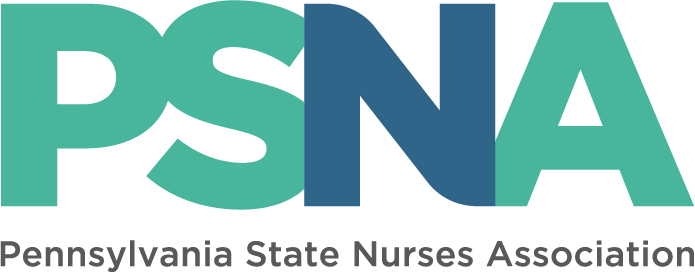Priorities
02.
Chief Nursing Officer
of the Commonwealth
How can we transform our State’s healthcare system? Strong leadership – including that of the registered nurse. It is imperative that RNs work as full partners with physicians and other health professionals to realize the goals of healthcare reform. Governor-appointed …

Other Priorities
Nurse Delegation
The Commonwealth of Pennsylvania lacks specific delegation language in the nurse practice act. Nurses are educated and accountable for the nursing care provided to healthcare consumers. In addition, they retain accountability for patient outcomes associated with delegation. Delegation legislation will place specific language into the Nurse Practice Act that will clarify the practice of delegation for the Commonwealth’s Registered Nurses. Sign up to receive text alerts and be the first to know when this legislation is moving.
Legislative Victories
Safe Staffing Resolution
HR 920
PSNA Supported: Passed 173-29 and Enacted: This resolution directs the Joint State Government Commission to study the issue of professional bedside nurse staffing. The Commission will report to the House of Representatives with its findings and recommendations to implement changes in State laws, practices, policies and procedures related to safe nurse staffing.
The Report was submitted to House of Representatives on June 30th, 2015.
Opioid Prescription Drugs
HR 659
PSNA Supported: Passed 200-0 and Enacted: This resolution establishes a task force on opioid prescription drug proliferation, creates an advisory committee and studies its impact on heroin use in the Commonwealth. It requires the Joint State Government Commission to be directed to recommend guidelines for prescribers within 60 days of the formation of the advisory committee. It also requires the task force and advisory committee to report to the General Assembly with suggested legislative and regulatory changes within one year of the adoption of the resolution. PSNA is part of this task force.
Prescription Drug Monitoring Program Act 191 of 2014
SB 1180
Signed into law October 27, 2014: provides for prescription drug monitoring; establishes a program to be administered by the Prescription Drug Monitoring Board in the Department of Health. The act is intended to increase the quality of patient care by giving prescribers and dispensers access to a patient’s prescriptive history through an electronic data system; patients will have a thorough record of prescriptions for purposes of making educated and thoughtful health care decisions; and aid regulatory and law enforcement agencies in the detection and prevention of fraud, drug abuse and the criminal diversion of controlled substances.
Nurse Licensure Compact
Act 68 of 2021. SB 115. Signed into law July 1, 2021. This bill authorized Pennsylvania to join the Nurse Licensure Compact (NLC). Once fully implemented, the compact will allow RNs and LPNs to have one multi-state license, with the ability to practice in Pennsylvania and 36 other compact states.
Whistleblower Act of 2014
Act 88 of 2014
HB 185
Signed into law July 2, 2014: This bill amends the Whistleblower Law to include the General Assembly in the definition of “public body” and increases the maximum civil fine from $500 to $10,000. It recognizes the Inspector General as an appropriate authority, and stipulates an appropriate authority may not disclose the identity of a whistleblower without the whistleblower’s consent unless disclosure is unavoidable in the investigation of the alleged violation. Effective in 60 days.
Act 87 of 2014
HB 118
Signed into law July 2, 2014: This bill amends the Whistleblower Law to add the following to the definition of “employer”: public body or individual; partnership; association; for-profit or non-profit corporation. Whistleblower protection is extended to an employee who makes a good faith report or is about to report waste stemming from a public body or other employer. The penalty for violation is increased to $10,000 and a maximum seven years suspension from public service. This recognizes the Inspector General as an appropriate authority, and stipulates an appropriate authority may not disclose the identity of a whistleblower without the whistleblower’s consent unless disclosure is unavoidable in the investigation of the alleged violation. Effective in 60 days.
Nurse Title Protection, Act 34 & 35 of 2012
HB 469/HB 470 – 2011
Signed into law May 8, 2012: The title “nurse” may not be used by a person who has not been licensed under the Nurse law.
Medical Cannabis
SB 3
Senators Mike Folmer and Daylin Leach
The Medical Cannabis Act, provides for the medical use of cannabis (marijuana) in Pennsylvania for the treatment of certain medical conditions. The State Board of Medical Cannabis Licensing is established in the Department of State to regulate and oversee the industry. The bill provides for the licensure of growers, processors, and dispensers. Medical cannabis mixed with food or drinks to assist with ingestion does not violate the ban on edible products. However, any food mixed with medical cannabis may not be sold. It establishes a registry to ensure adequate availability of different medical cannabis strains and concentrations. PSNA was successful in having CRNPs included into the bill, but this language includes a written agreement in collaboration with a physician.
PSNA was unsuccessful in having RNs included in the language to oversee dispensing of cannabis. Signed into law May 21, 2013: Act 16 of 2016
Recognizing Nurse Anesthetists as Certified Registered Nurse Anesthetists
Act 60 of 2021. SB 416. Signed into law June 30, 2021. This bill granted formal title recognition to certified registered nurse anesthetists in Pennsylvania. Previously, Pennsylvania was one of only two states that did not recognize CRNAs in its Professional Nursing Law.




